MercoPress. South Atlantic News Agency
Tag: drugs
-
Tuesday, August 23rd 2011 - 06:42 UTC
OAS calls for ‘shared responsibility’ from drug-consuming countries
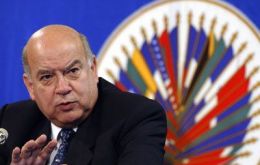
Consumer countries must assume their responsibility in the fight against the drug trade because as long as there is a demand, the illegal business won’t be stopped said the Organization of American States Secretary General Jose Miguel Insulza who also praised his host Peruvian president Ollanta Humala for convening a presidential summit on the issue.
-
Thursday, July 28th 2011 - 06:15 UTC
UK to cooperate with Bolivia in the fight against drug trafficking
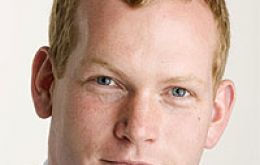
The British government has announced a new co-operation deal with Bolivia in the fight against drug trafficking. During a two-day visit to Bolivia, Britain's Minister for Latin America, Jeremy Browne, said the Serious Organised Crime Agency in London will join forces with the counter-narcotics police in La Paz.
-
Saturday, July 9th 2011 - 07:13 UTC
Brazil banned from selling Israeli-technology UAV to Venezuela
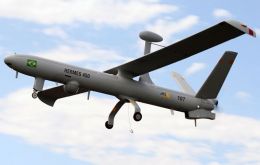
Israel Aerospace Industries signed a joint venture with Brazil's Synergy Group to manufacture Unmanned Air Vehicles (UAV) (drones) to fight drug trafficking in Brazilian borders under the condition that the aircrafts are not sold to Venezuela.
-
Friday, July 8th 2011 - 05:55 UTC
Unmanned aircraft patrol Bolivia/Brazil border to control drugs and smuggling
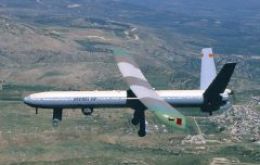
Four Brazilian unmanned aircraft guided by remote control, Drones, will begin operating in August along the Bolivian border announced Felipe Caceres, Bolivian Social Defence Deputy Minister.
-
Friday, April 15th 2011 - 19:59 UTC
Falklands’ deports Spanish seamen serving imprisonment sentences
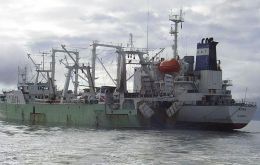
Two Spanish seamen serving imprisonment sentences for drugs related crimes in the Falkland Islands have been deported and since last Sunday are back in Spain, reports the Islands Police Headquarters.
-
Monday, April 11th 2011 - 20:34 UTC
Crime and violence cost Central American countries 8% of GDP, says World Bank
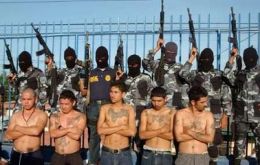
Growing crime and violence in Central America not only have an immediate human and social toll but they also pose a tremendous threat to development potential in the region since it is estimated that these sources of instability cost 8% of GDP, once health, institutional, private security, and material expenses are accounted for.
-
Wednesday, March 23rd 2011 - 03:28 UTC
Obama in El Salvador shifts from economic success to drugs and immigration
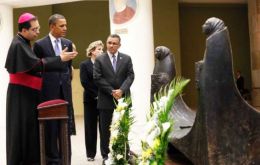
President Barack Obama is nearing the end of a five-day tour of three Latin American nations to underscore the advance of democracy, and strong economic growth in the region.
-
Saturday, March 5th 2011 - 05:07 UTC
Nobel Prize Vargas Llosa calls for legalizing drugs to avoid the Mexican experience

Nobel Prize winner in Literature Mario Vargas Llosa said that countries across Latin America will eventually suffer the same type of organized crime-related mayhem currently battering Mexico unless a decision is made to legalize drugs.
-
Monday, February 14th 2011 - 06:11 UTC
Colombian president supports legalizing drugs if it reduces violence and crime

Colombian President Juan Manuel Santos said in an interview published Sunday that he could consider legalizing drugs as a way to reduce violence and crime in his country. He joins a list of prominent Latinamerican leaders who are promoting the initiative.
-
Monday, September 6th 2010 - 04:20 UTC
A majority of Montevideo residents (71%) feel the city is not safe

A majority of Uruguay’s capital Montevideo residents (71%) feel the city is not safe and fear “mugging in the streets” and “young people consuming ‘pasta base’” (a cheap by-product of cocaine). They are also unsatisfied with the city’s transport system.
